Hemp, The Fabric Of The Past Is Becoming The Fabric Of The Future
Plants are known for their medicinal properties, but did you know that many kinds of plants, fruits, and flowers are now being used in fabrics too? One of them is hemp - a species of Cannabis Sativa. It was legalised to be cultivated in Uttarakhand in 2018 and is now being used by brands for making products that are good for the planet.
-
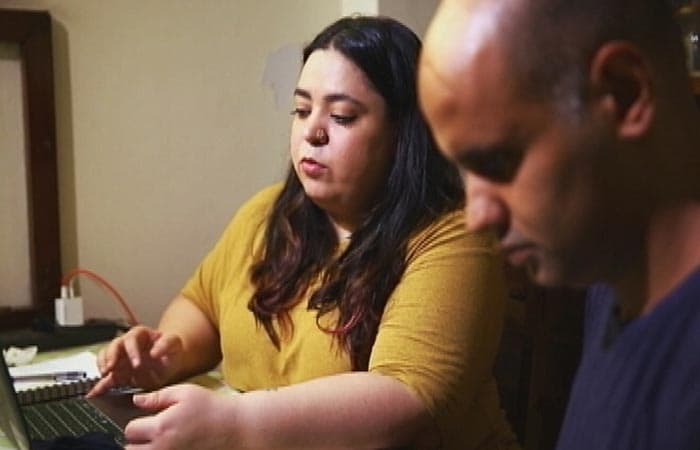 Aslee, an eco-conscious brand, co-founded by Zoya Wahi and Nitij Singh, works with hemp, bamboo and nettle to make sustainable products. Being an extremely viable fabric, hemp increases the fertility of the soil, requires little water to grow and flourishes without chemicals.
Aslee, an eco-conscious brand, co-founded by Zoya Wahi and Nitij Singh, works with hemp, bamboo and nettle to make sustainable products. Being an extremely viable fabric, hemp increases the fertility of the soil, requires little water to grow and flourishes without chemicals. -
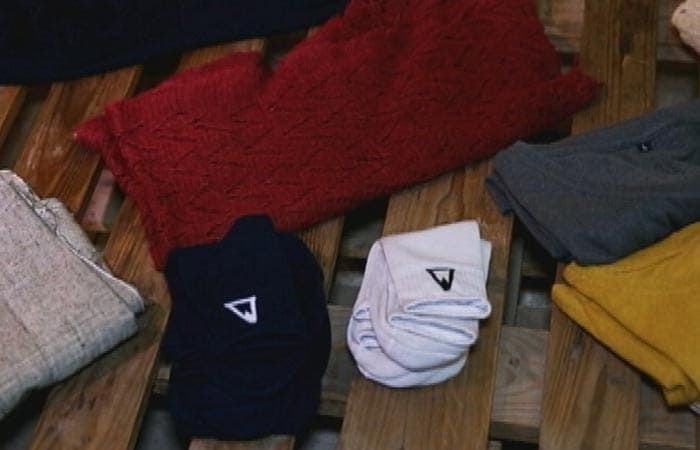 Nettle is considered to be a carbon-neutral fibre with no wastage and it can be as versatile as hemp. Giving out more details about Nettle and how it is used, Zoya said, "Nettle is one of the strongest fibres that you will come across. It lasts very long. So, there is no reason for these fabrics not to be alternatives to the things that we have been using currently and abusing almost by overusing them."
Nettle is considered to be a carbon-neutral fibre with no wastage and it can be as versatile as hemp. Giving out more details about Nettle and how it is used, Zoya said, "Nettle is one of the strongest fibres that you will come across. It lasts very long. So, there is no reason for these fabrics not to be alternatives to the things that we have been using currently and abusing almost by overusing them." -
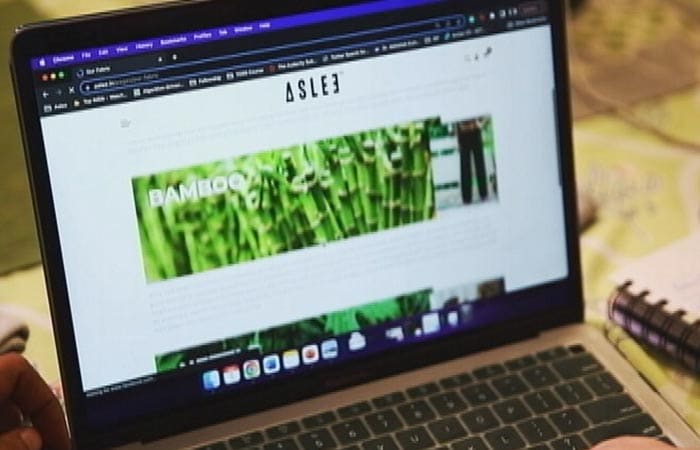 Aslee is all about sustainable fashion from sustainable materials. But it's not just another brand promoting sustainability, it's a brand that is actually practising sustainability by helping local communities grow hemp.
Aslee is all about sustainable fashion from sustainable materials. But it's not just another brand promoting sustainability, it's a brand that is actually practising sustainability by helping local communities grow hemp. -
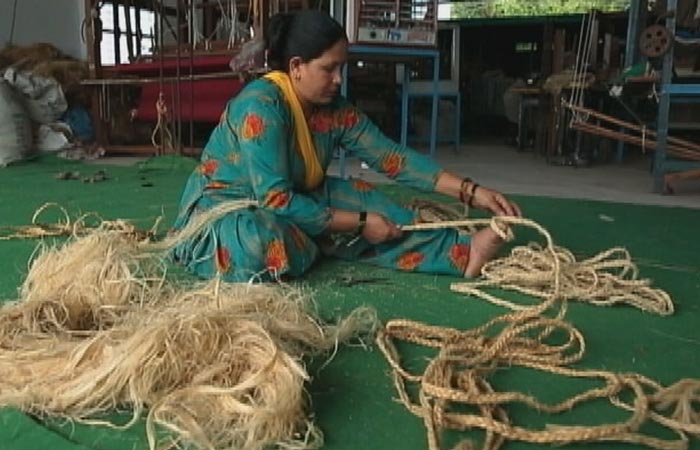 Aslee works with a small community of makers, mainly employing women in under-serviced areas they try and give them a stable livelihood. Aslee procures fabric only from factories that have basic set criteria that make these people's lives liveable and pay them fair wages. The brand sources most of its material from Bhartiya Gramotthan Sanstha.
Aslee works with a small community of makers, mainly employing women in under-serviced areas they try and give them a stable livelihood. Aslee procures fabric only from factories that have basic set criteria that make these people's lives liveable and pay them fair wages. The brand sources most of its material from Bhartiya Gramotthan Sanstha. -
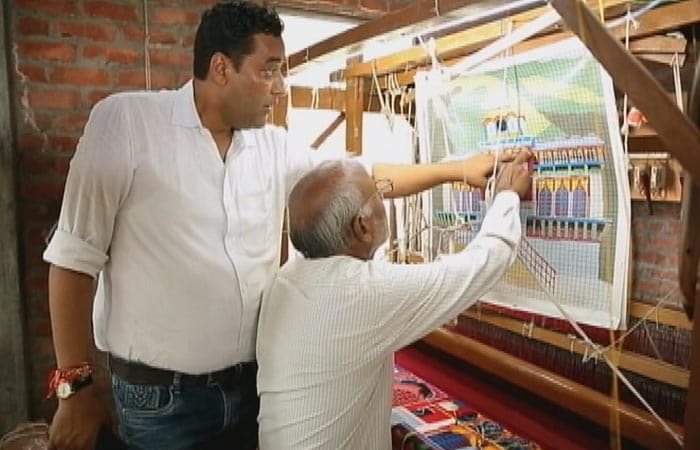 In 1989, P. M. Chandola founded Bhartiya Gramotthan Sanstha with employment generation as the core objective. To achieve its goal, the organisation emphasises on local raw material-based employment and gives opportunities to women. Bhartiya Gramotthan Sanstha promotes handicraft products with the local raw material available in the villages and also the use of plant-based fibres for textile fabrics.
In 1989, P. M. Chandola founded Bhartiya Gramotthan Sanstha with employment generation as the core objective. To achieve its goal, the organisation emphasises on local raw material-based employment and gives opportunities to women. Bhartiya Gramotthan Sanstha promotes handicraft products with the local raw material available in the villages and also the use of plant-based fibres for textile fabrics. -
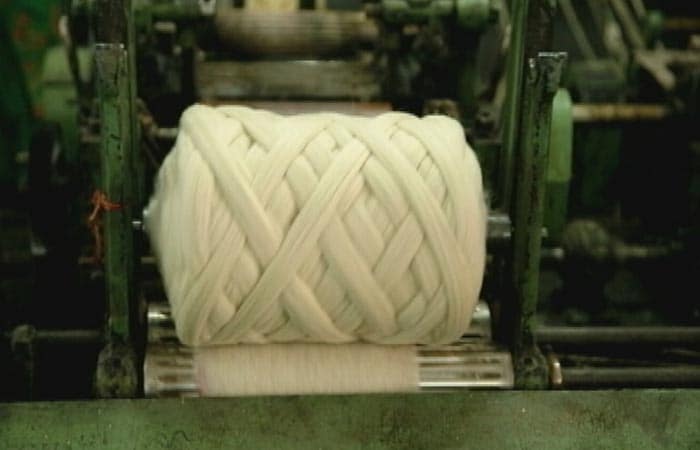 The organisation mainly works with sheep wool, Bhimal which comes from the bark of a specific tree, Nettle, industrial hemp, and other plant-based fibres found in Uttarakhand.
The organisation mainly works with sheep wool, Bhimal which comes from the bark of a specific tree, Nettle, industrial hemp, and other plant-based fibres found in Uttarakhand. -
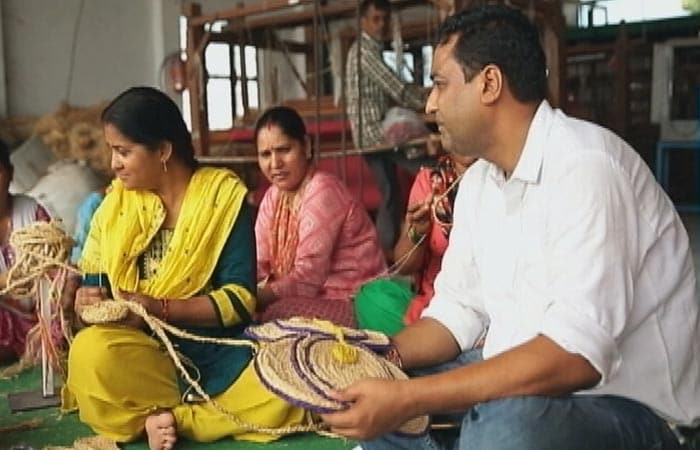 The journey from fibre to fabric is not an easy one. Once the organisation receives raw material from the farms, it goes through several processes - including dusting, willowing, carding, gilling and twisting - to be finally turned into a usable form.
The journey from fibre to fabric is not an easy one. Once the organisation receives raw material from the farms, it goes through several processes - including dusting, willowing, carding, gilling and twisting - to be finally turned into a usable form. -
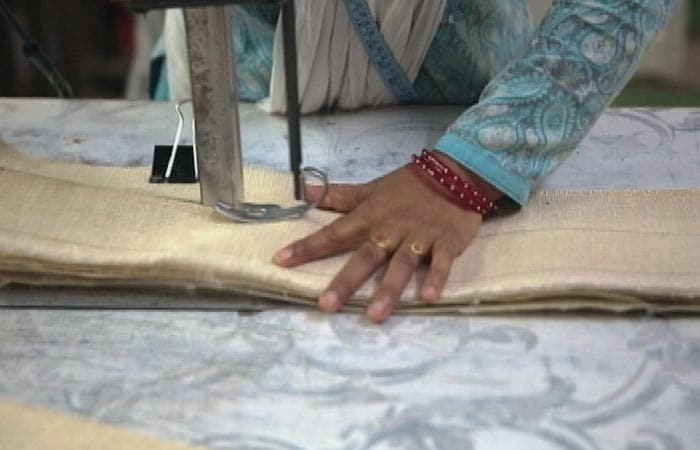 While the material is completely biodegradable and sustainable, the process of making the fabric is eco-friendly too. The organisation uses handlooms to weave fabric with the warp and weft technique. They don't even use dyes.
While the material is completely biodegradable and sustainable, the process of making the fabric is eco-friendly too. The organisation uses handlooms to weave fabric with the warp and weft technique. They don't even use dyes. -
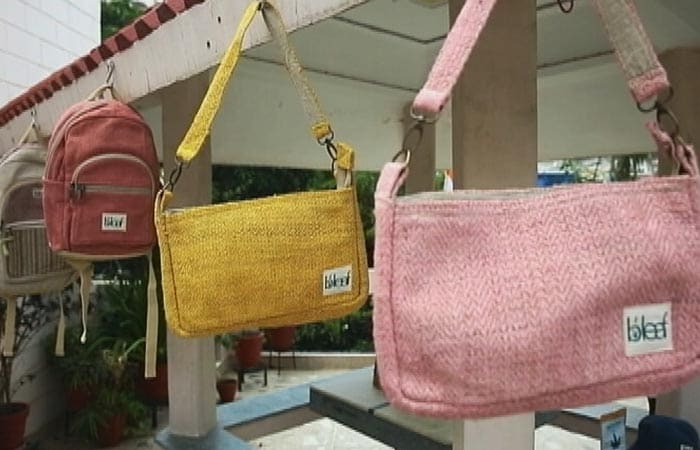 Another brand, that is making use of hemp in its different forms for creating products that are both therapeutic and also sustainable, is Ghaziabad-based B'leaf.
Another brand, that is making use of hemp in its different forms for creating products that are both therapeutic and also sustainable, is Ghaziabad-based B'leaf. -
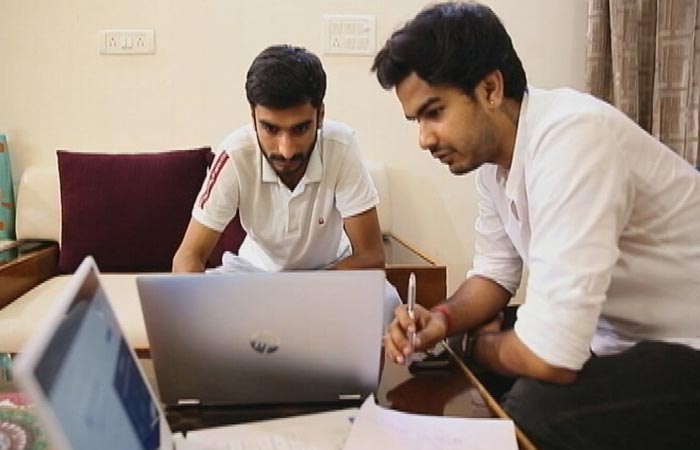 Founded by Divyanshu Kumar and Nikhil Asopa, B'leaf aims to instill mindful consumerism and conscious living in the hearts of people. They also hope to change mindsets in the process.
Founded by Divyanshu Kumar and Nikhil Asopa, B'leaf aims to instill mindful consumerism and conscious living in the hearts of people. They also hope to change mindsets in the process. -
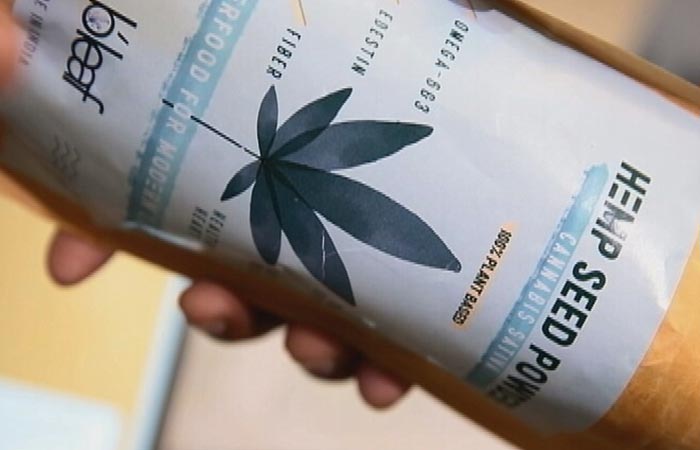 The products that B'leaf launched initially were bags and hemp protein. The first product was hemp protein which they call hemp seed powder. Explaining how it's made, Divyanshu Kumar, Co-founder and CEO of B'leaf said, "On processing and crushing, hemp seeds produce oil. Once the oil has been extracted, the cake that remains is where the hemp seed powder protein comes from."
The products that B'leaf launched initially were bags and hemp protein. The first product was hemp protein which they call hemp seed powder. Explaining how it's made, Divyanshu Kumar, Co-founder and CEO of B'leaf said, "On processing and crushing, hemp seeds produce oil. Once the oil has been extracted, the cake that remains is where the hemp seed powder protein comes from." -
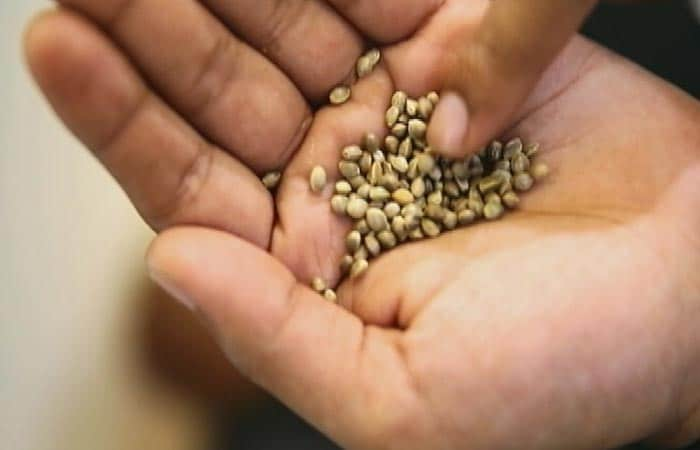 By demonstrating how versatile hemp is, Nikhil and Divyanshu want to change perceptions about the most misunderstood fibre. There is ancient knowledge and wisdom around the use of cannabis, which they want to revive with new and improved techniques.
By demonstrating how versatile hemp is, Nikhil and Divyanshu want to change perceptions about the most misunderstood fibre. There is ancient knowledge and wisdom around the use of cannabis, which they want to revive with new and improved techniques.
Advertisement
Advertisement
Advertisement
Advertisement
